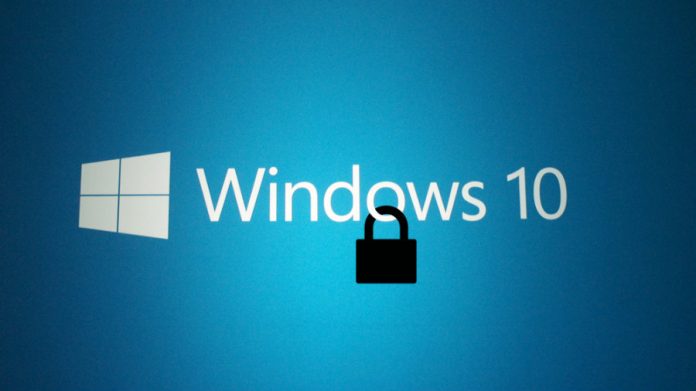
Windows 10 anniversary update is going to be available for free until July 29, then it will be re-released on August 2 with an online fee. The experts are interpreting the upgrade, altogether with the company’s announcements during the last year, as a sign the company is retreating from the mobile phone market. But that’s not quite the case for Windows.
As a matter of fact, Microsoft has not released a Window exclusive phone since 2015, instead, they have been working hard on increasing the OS security. The strategy worked and the software developer re-established its positions as the go-to option for people who want top security.
The also called the “low-end” shifted the balance of power, and now Apple has a bigger presence in the market. However, Android leads the smartphone industry, and there is not much its rivals can do about it.
https://www.youtube.com/watch?v=O4XHCg1NxzM
The staff behind Microsoft was confident enough to give it a try, and for some time they entered the smartphone arena head-on, without much success. Windows Phones are not bad, in fact, the last models Lumia 950 and 950 XL are excellent pieces of hardware, and fans still rock them.
Yet, it seems the directors of the division don’t understand the differences between the software market and the mobile phone market. The latter is as much as a technology competition as it is a popularity contest, and in this aspect, Apple has no rival. Android’s accessibility and simplicity worked just fine for Google, but the creators of the Xbox couldn’t pull it off.
Windows Defender’s the No. 1 antivirus option on #Windows10; make sure it’s up and running: https://t.co/Qd8EkemHoT pic.twitter.com/WyKtAQHN2A
— Windows (@Windows) July 20, 2016
Almost 40% of the companies in the European country use Windows 10
Online security is labeled as a fairy tale, and there are lots of blogs and famous cases that prove the statement to be true. Yes, even the Pentagon has been hacked, but that does not mean anyone can do it. In fact, the number of people who can successfully break complicated security protocols is significantly low.
However, there are millions of hackers who can crack a medium or weak security system. That is why companies around the world, particularly Europe, prefer Windows 10.
First, the OS acknowledges how obsolete passwords are, which is why Windows 10 supports a whole variety of security systems based on biometrics. The company is working closely with manufacturer partners such as Intel and HP. And it’s worth noticing Hewlett-Packard has been flirting with the idea for years with their Pavillon series.
https://www.youtube.com/watch?v=h9xS7mhi1BA
The ultimate goal is to replace the alpha-numeric PIN for built-in readers able to scan the users’ fingerprints, facial features and more. There is another tool called Microsoft passport which allows the users to register websites and apps to their profiles, and the OS will let them sign in without using passwords.
Also, the anniversary update included a zero-day attack blocker. Also known as zero-hour, this terms refers to bugs and imperfections that every system, yes every single one of them, have. When hackers discover how to exploit this soft spots, people don´t have any spare time to deal with the situation, hence the name. Windows 10 has a bouncer that identifies possible threats and keep them away from the system.
Upgraded to #Windows10 yet?
Here's some #tips for a smooth upgrade: https://t.co/wTb2y3dHkI pic.twitter.com/4p29YbrV2K
— Microsoft UK (@MicrosoftUK) July 21, 2016
Enterprise customers love Azure for the way it protects their data. It is simple, the software applies a number of protocols and policies to the data within the computer, so that it’s almost impossible to access it without the proper authorization. The anniversary update extended the reach of this feature by applying it to delivered data.
For example, if someone receives an e-mail containing charts, the attached information is going to be protected by the same security protocol that exists in the platform from which it was sent. Of course, the receiver can be authorized to do changes, but the system will tell the user what is the original protected data, and what is the added “vulnerable” input. Lastly, the receiver can choose for his modifications to be protected by the feature. For people, this means their information cannot be copied, downloaded or changed without authorization.
https://www.youtube.com/watch?v=1xmLvAfvhDI
Even the tightest security can be breached
Preventing 100% of the breaches is currently impossible, that is why Windows 10 has some very effective protocols to deal with intruders. In this second layer, the company set a secure boot. Hackers sometimes set their malware to be a threat only when the computer boots, so they are invisible for blocker programs.
However, the secure boot only lets authorized software to initialize when a device is turned on or is re-started, and the ill-intended programs are left forever dormant. However, there are people that use Linux, so Microsoft confirmed the feature can be disabled.
The last line of defense is very sophisticated and comes from the alliance with the company Bromium. A virus will usually enter the computer to look for useful information and sent it back to the attacker or to damage it. In order to do this, the program needs to jump from folder to folder until it’s completely widespread in the system. Windows 10 counters using micro-virtualizations within the system.
Here's how to write #Windows10 IoT Core apps that can protect security-sensitive info: https://t.co/PdvFYq1pra pic.twitter.com/AEFOWuCGTx
— Windows Developer (@windowsdev) July 20, 2016
The most important information exists in an isolated individual world rather than in an interconnected environment. As a result, when malware enters a folder, it stays there until the operator finds out a way to deal with it minimizing the damage.
All in all, the company is not going to completely abandon the mobile phone market, it is just going to appeal to its fanbase, and people that want to use their smartphones without fearing their information is going to be stolen or leaked.
Source: Windows Central










